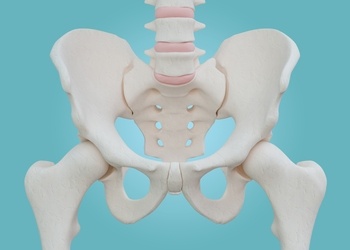Across the world, nearly 200 million women are suffering from osteoporosis, a condition which weakens their bones, making them fragile and more easily broken. While men can develop osteoporosis as well, women account for about 80 percent of all cases. Not only are women’s bones smaller than those of men, they are also susceptible to the substantial decreases in estrogen that come with menopause. Such factors make monitoring bone health for those at risk especially important. Unfortunately many women are unaware of their weakening bones until a break occurs.
How Bone Density Tests are used
Bone density tests are useful diagnostic tools that can help detect the presence of osteoporosis in its earlier stages. These scans use x-ray technology in order to measure calcium and other minerals within the bones of the lower spine, hips, or forearm. The results are reported in two sets of numbers: T-score and Z-score:
T-score:
|
-1 or higher |
Normal scan results |
|
-1 to -2.5 |
Indicates the presence of a low bone density condition called osteopenia, often a precursor of osteoporosis |
|
-2.5 or lower |
Osteoporosis |
Z-score:
Z-score measures deviations from what is considered a normal result based on your age, sex, weight, and race. If your Z-score is -2 or below, there may be reason to suspect that a medical condition beyond aging is causing an abnormal rate of decrease in bone density.
Who should have a Bone Density Test?
There are a number of factors which may increase an individual’s risk for loss of bone mass. Your physician may request a bone density scan in order to gain better insight into your bone health if any of the following factors apply:
- Women age 65 or older and men age 70 or older
- Lost height of at least 1.6 inches
- Fragility bone fractures
- Lowered estrogen in women or testosterone in men due to factors other than aging such as cancer treatments
- Long-term use of steroid medications such as prednisone
- Received anti-rejection medications following an organ or bone marrow transplant
What to Expect after a Bone Density Test
If the scores of your bone density test indicate the presence of osteoporosis, your physician will make treatment recommendations based on cause and severity. If it is determined that your risk of breaking a bone within the next 10 years is not high, these recommendations may focus primarily on ways you can reduce your risk of breaks and future bone loss. For those whose condition is more progressed, medication may also be included as part of the treatment regimen.
If you have questions or concerns regarding bone density and osteoporosis, speak to your physician about receiving a bone density test at a facility such as the Lane Outpatient Diagnostic Center. The results from your test can give both you and your doctor valuable insight into the current state of your bone health, as well as the ability to foresee any potential problems that may be lurking.
Lane Outpatient Diagnostic Center
6550 Main Street
Zachary, LA 70791
(225) 658-4563
Open
Monday – Thursday 7 a.m. – 4:30 p.m.
Friday 7 am. – 2:30 p.m.



.png?width=850&height=850&name=lane%20badge%20(1).png)


-1.png?width=711&height=711&name=healthy%20br%20(4)-1.png)

